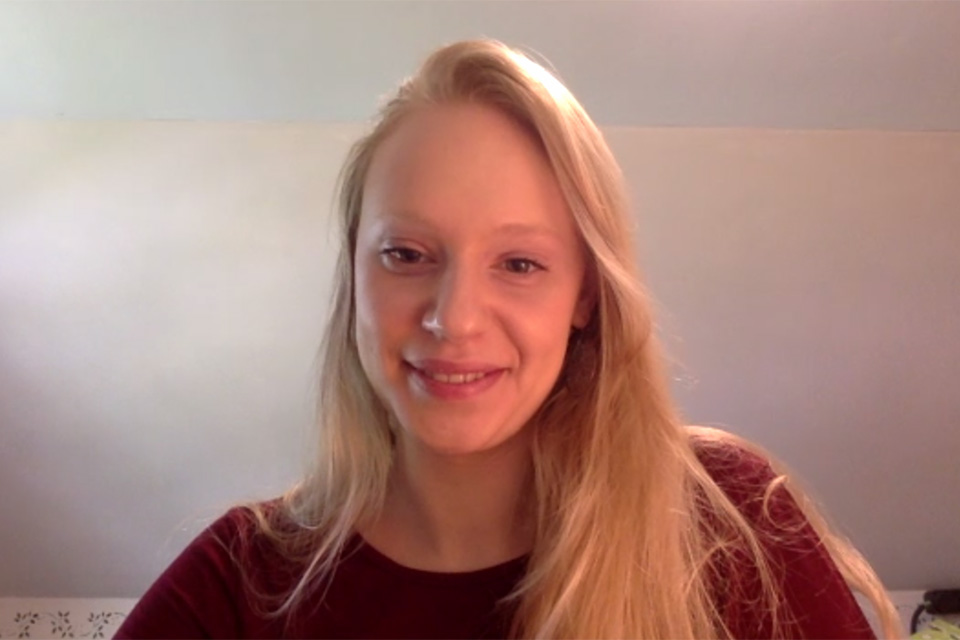Shai Dinnar '21
Wingfield Lab, Department of Psychology
Brandeis University

Fellow Reflection: Conducting Research During a Pandemic
For the past year, I have been working towards my thesis titled “Spectral Richness and Comprehension of Spoken Discourse by Adult Users of Cochlear Implants versus Channel Vocoding”. The Bauer Foundation Grant this summer enabled me to work on my thesis full time, an opportunity to dive deep into the process and to ensure the completion of the study despite Covid-19 challenges. Prior to Covid-19, the format of the study was in-person set up with participants coming physically into the lab. The week campus closed I had just finished running our first group of people in the full study, finalizing the procedure and analyzing the pilot group. In the Memory and Cognition Lab we work with human subjects, so we recognized early on that we wouldn’t be able to continue the current form of the study due to social distancing and campus shutdown. We therefore chose to adapt by pivoting to recreating the entire study online. This meant that over the summer months and using the M.R. Bauer Foundation grant I have been learning how to use a new experiment platform to allow for the study to be remote, coding up the study, adding and altering features, and building new data analysis scripts. My thesis is now focused on the online version – a challenge we had to overcome and are now ready to fully implement. The upcoming months will be focused on finishing running subjects in the online version, conduct all the data gathering, and starting full analysis this fall. I would not be able to finish my thesis if not for the summer support as a Bauer Research Fellow, especially because of the pivot and the time required to find ways to remake the study before my graduation in December.
This summer has been one of great change in our country as well as around the world. Although the scientific work we do in labs is largely shielded from outside influences, the events of the summer including Covid-19 and refocusing on the importance of social equity and racial justice have inspired me to look again at the intersection between the work we do in the labs and its implication in the greater world. During these months I have been reminded of our responsibility as a lab in working with human subjects. Our priority has always been ensuring the health and safety of our participants, but especially during this time it is important for us to engage virtually with the people who are a part of our lab community and to make sure they are well. Secondly, I am hopeful that the greater discussions around racial justice and equity within the scientific and medical systems will continue to occur and push us to improve: to ensure representation and diversity within our participants and our labs. Recognizing the importance of scientific discoveries and how they shape the larger society has been a big learning point for me this summer and I am proud to attend Brandeis University, a university that values both research excellence and social justice.
Giving Back
An important part of being a member of the scientific community is being able to translate lab skills to create positive change outside the lab setting. As increased focus this summer has been put on improving health care systems and finding solutions to Covid-19’s impact – I have been venturing to solve a worrying side of the stay at home orders, the rise in domestic violence cases across the nation. For the past few months my team and I have been working on building a web platform to help assess the situation for individuals experiencing domestic violence during quarantine. Since the beginning of the pandemic we have been working with health care providers, hospitals, coalition groups, survivors and advocates to identify the pain points and to build out the optimal solution.
This journey has required me to apply the same hypothesis, testing, iteration, and analysis work that I use in the lab setting. It has also been really informative to see the same systems that I am used to seeing through the neuroscience lens applied to a social crisis issue.